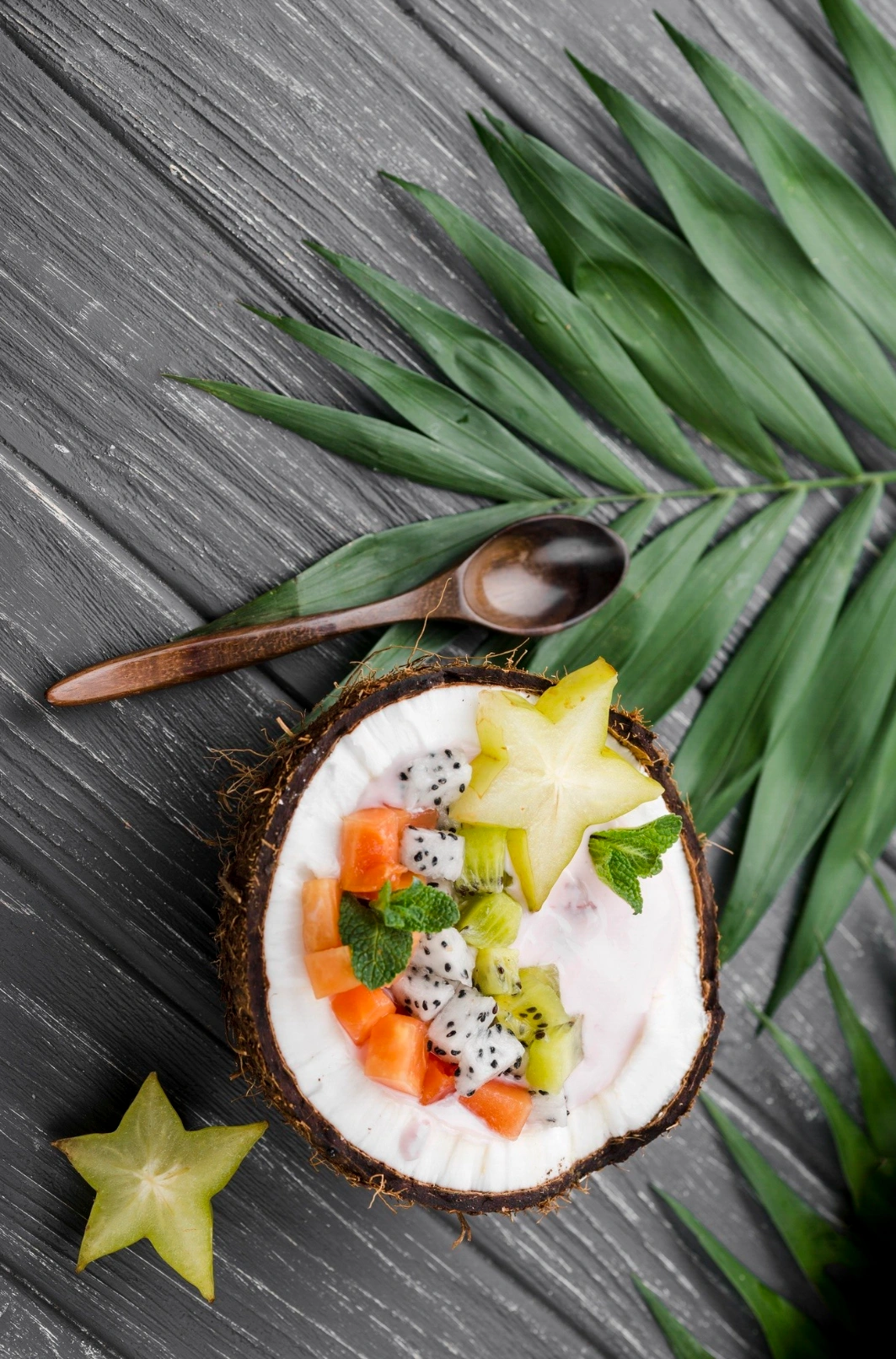

Top Health Benefits of Tropical Smoothie Bowl You Need to Know
This Coconut Tropical Smoothie Bowl is a powerhouse of nutrients, combining the goodness of tropical fruits, healthy fats, and plant-based ingredients into one vibrant dish. Bananas provide natural sweetness and are a great source of potassium and vitamin B6, while fruits like papaya, dragon fruit, kiwi, and starfruit deliver a burst of antioxidants, vitamin C, and digestive enzymes that support gut health. Coconut milk or Greek yogurt adds creaminess while providing healthy fats and probiotics, which are essential for a balanced microbiome. The optional additions of chia seeds or granola contribute extra fiber, protein, and omega-3 fatty acids, helping to keep you full and energized throughout the day. With no added refined sugars and a naturally gluten-free profile, this smoothie bowl is not only delicious but also a nourishing option for a healthy lifestyle.
Recipe :
Serves 2
Enjoy your refreshing, vibrant Coconut Tropical Smoothie Bowl!
When preparing this smoothie bowl, it’s essential to ensure the fruits are ripe and either fresh or frozen for the best flavor and texture. Using frozen bananas or other frozen fruits like strawberries or mango gives the base a thick, creamy consistency without needing ice. Always blend the base ingredients first until smooth, adding a splash of coconut milk gradually to control thickness. For a stunning presentation, take the time to neatly slice and arrange the topping fruits, contrasting colors for visual appeal. If using a real coconut shell as a bowl, be careful while cutting and cleaning it to avoid injury. Also, avoid overloading the bowl with toppings—while they look beautiful, too many can overwhelm the smoothie and shift the balance of nutrients and calories. Clean equipment and cold ingredients ensure a fresh, food-safe, and visually appealing final product.

This smoothie bowl fits well into several popular dietary lifestyles, especially vegetarian, gluten-free, low-calorie, and DASH diets, making it versatile and widely accessible. For vegan diets, simply substitute Greek yogurt with a plant-based alternative like coconut or almond yogurt. It’s not ideal for strict ketogenic or paleo diets due to its relatively high carbohydrate content from fruits, especially bananas and tropical varieties. Similarly, it’s not suitable for high-protein or fasting-focused regimens, as it contains moderate protein levels and natural sugars that may break a fast. However, for those following clean eating, heart-healthy, or plant-rich regimens, it’s an excellent way to start the day or enjoy a light yet satisfying meal. The customizable nature of the ingredients also allows for easy adaptation based on dietary preferences and restrictions.
...